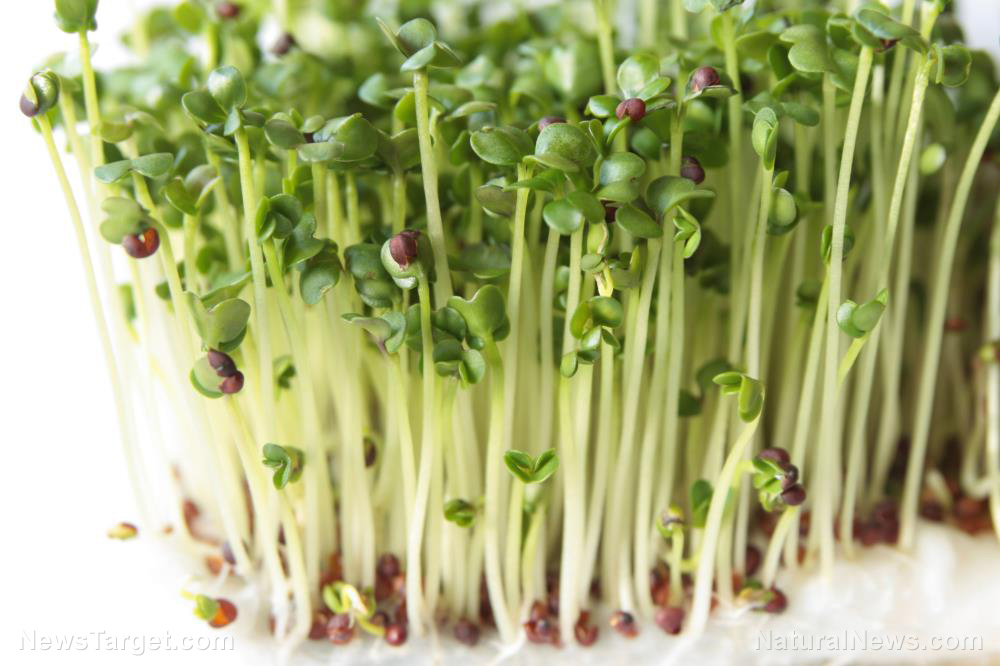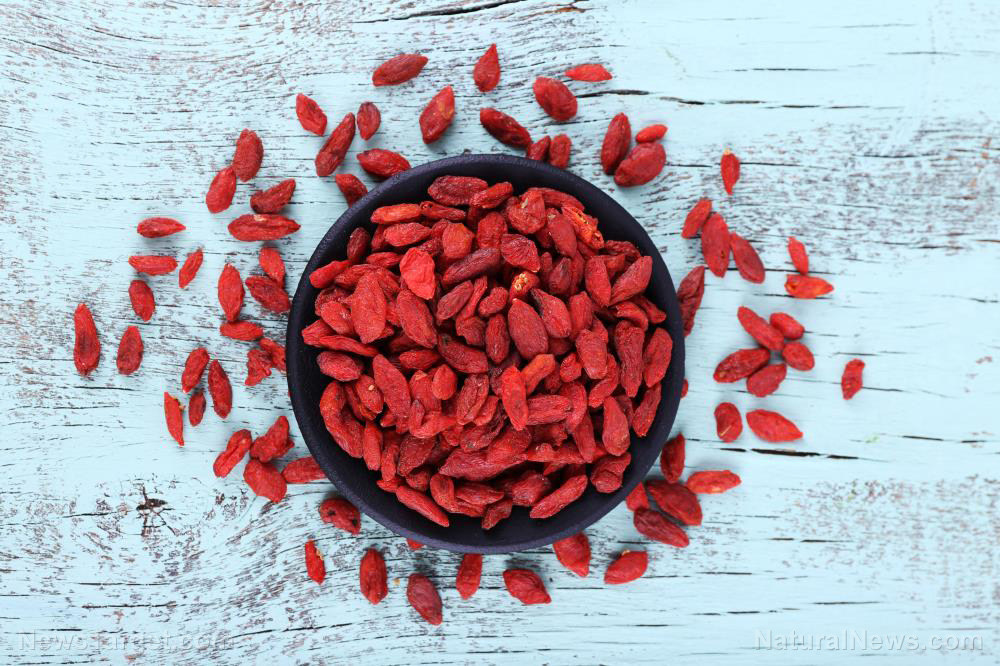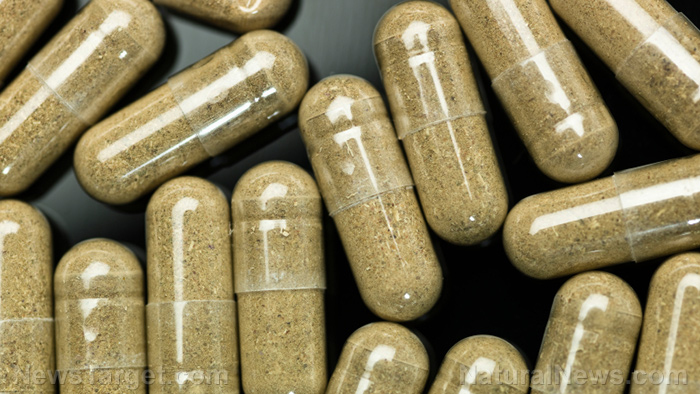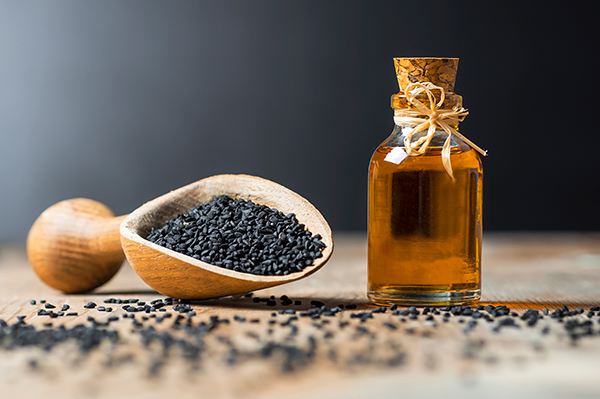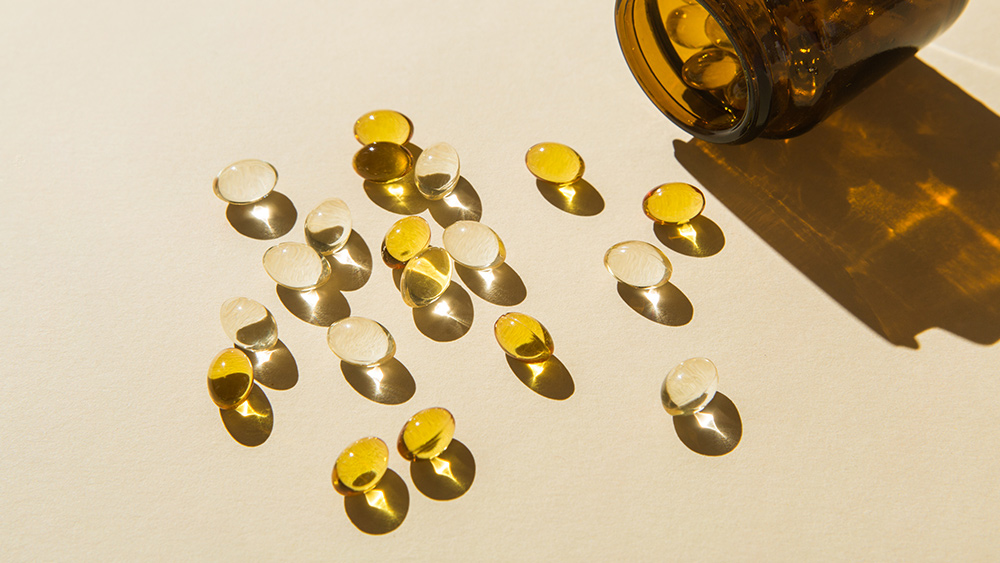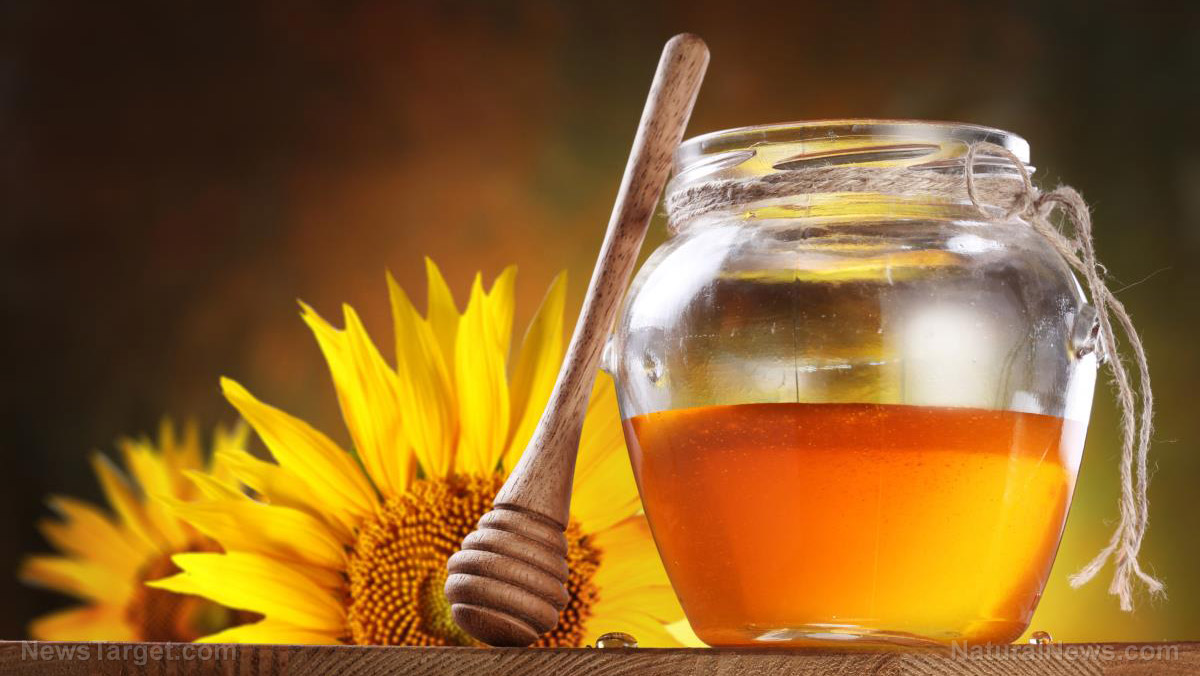SHTF sanitation and hygiene: 5 Plants that you can use as soap
11/21/2022 / By Zoey Sky

Washing your hands regularly and keeping your home clean is important for maintaining proper hygiene and the prevention of illnesses.
But you might run out of crucial supplies like soap when SHTF, so find out which plants can be used as a natural soap alternative. These plants are also a good alternative to soap and cleaning products that contain ingredients that can harm your health. (h/t to Survivopedia.com)
If you think you need more than soap and water to clean your home, you can also try making cleaning solutions with non-toxic ingredients like vinegar.
Vinegar will help kill almost any microbe, even though it leaves a faint odor that will eventually go away. If the smell of vinegar bothers you, you can make a homemade cleaning solution and add essential oils to make things smell a bit nicer.
Before SHTF, you can forage or grow the five plants discussed below so you always have access to plants that can be used as a soap alternative. (Related: DIY cleaning supplies: 3 Simple recipes for homemade cleaning products.)
Pine (Pinus spp.)
You need pine needles and sap to make soap.
Since pine is an evergreen tree, you can collect the materials to make soap year-round.
While pine is popular for its medicinal use, not many preppers know that it is also a good cleaning agent. Turpentine is made from the sap of pines and the ingredient is often added to cleaning supplies because it has antiseptic properties.
Pine needles also have antiseptic qualities and are easier to work with than sap.
To grow pine trees on your property, try growing them from seeds. But because growing pine trees from seeds can be challenging and unpredictable, you can buy saplings and increase your chances of successfully growing a tree in your yard.
Plant the saplings in full to partial sun during late fall or in spring. Choose an area in your garden with good drainage since pines don’t like too much water.
Pine trees are not picky about the soil type and will grow in zones 3 to 7.
Rosemary (Rosmarinus officinalis)
Rosemary leaves are used to make soap. Rosemary is another plant with known antibacterial properties. It thrives in well-drained soil and can be grown indoors and outdoors easily.
Rosemary grows well in zones 7 to 10 but if you live in areas with harsh winters, grow it in containers so you can bring it indoors during colder months. If you grow it in your garden in a sheltered spot, use a lot of mulch to protect the plants during the winter.
When using rosemary to make natural cleaners, cut the growth tips regularly during the growing season. Pick the green stems and leave the woody ones so the plant can grow successfully between cuttings.
Sage (Salvia officinalis)
Sage leaves can be used to make soap.
Sage was used in ancient times as an antibacterial, antiseptic and antifungal. According to laboratory tests, sage is also effective against salmonella and E.coli.
Sage is easy to grow and it is cold-hardy. It thrives in zones 4 to 8 and doesn’t require a lot of maintenance.
Sage needs some mulching in areas with colder climates. It will thrive in a variety of soils that has good drainage.
Pick sage leaves through the growing season for homemade cleaners.
Thyme (Thymus vulgaris)
Use thyme leaves to make soap after SHTF.
Thyme is an antibacterial and antifungal plant. There are several varieties of thyme that you can use to make soap and they are hardy, between zones 2 to 10.
The most common types of thyme will thrive in zones 5 to 9.
Since thyme does well in slightly alkaline soil, you can grow it in a rock garden. It is a creeper that doesn’t grow very tall.
When grown in a rock garden, stones beneath the plant will provide adequate drainage and will also prevent leaf root, which commonly affects the plant.
Most thyme varieties can be left alone to grow. Plant thyme in full sun.
It can handle hot, dry conditions better than cool, damp soil.
Harvest thyme by cutting the green growth just below the woody stems of the plant.
Yucca (Yucca glauca)
Yucca roots can be used to make soap.
Yucca is also called soapweed yucca since it has a long history of being used as a soap substitute. Yucca roots contain saponins.
The roots produce soapy foam and they also have antibacterial properties.
If you harvest yucca fresh, simply pound the roots of the plant with a hammer on a hard surface until they create suds that can be used for washing.
If you want to use dry roots, add 1/4 tablespoon of chopped root to a quart of water and bring it to a boil. Let the roots simmer until suds begin to form.
Let the mixture simmer some more until the resulting soap has a thickness to your liking.
Yucca is easy to grow and it doesn’t just grow in desert regions. It is hardy in zones 4 to 10 and tolerates frost well.
Yucca can grow in a variety of soils if you plant it in full sun, and it doesn’t need a lot of maintenance or water to grow well.
Plant soap recipes to try
Here are some plant soap recipes to try if you need soap after SHTF.
Bathroom sink scrub
Ingredients:
- 2 Tablespoons cream of tartar
- 2 Tablespoons vinegar
- 1 Tablespoon coarsely ground fresh rosemary
- 1 Tablespoon coarsely ground fresh sage
Directions:
- Combine the ground herbs and cream in a small container.
- Pour in the vinegar and stir until you have a paste.
- Use a clean cloth to rub one tablespoon of the scrub on the surface of the sink. When done, rinse with clean water.
Note:
The herbal scrub works on almost all ceramic surfaces and is lightly abrasive. Be careful when using the scrub on delicate surfaces.
Multiply the ingredients to make as much cleaner as you need, but the ingredients for the default recipe should be more than enough to clean the average-sized sink.
Leftover scrub can be stored in a cabinet for up to two weeks. If the scrub dries out, add more vinegar to hydrate it.
Counter wipes
You will need:
- 1 Pint jar with lid
- 3 (6×6) Square cotton fabric
Ingredients:
- 1 Cup of distilled water
- 1 Ounce Castile soap
- 2 Tablespoons fresh thyme leaves
- 8 Drops essential oil (optional)
Directions:
- Make a strong thyme “tea” by boiling the distilled water and adding the thyme leaves. Cover the cup and let the tea cool down before straining.
- Add the Castile soap to the strained tea and essential oil if you are using it.
- Pour the mixture into the pint jar.
- Fold the cotton fabric squares and let them soak up the tea.
- Close the jar with the lid and store it until you’re ready to use the wipes.
Note:
Use the wipes to disinfect surfaces inside your home.
Wash the square cloths after each use and return them to the jar to reuse them, but change the cleaning solution every week or two.
Pine cleaner
Ingredients:
- 4 Cups distilled water
- 1/2 Cup of fresh pine needles
- 1 Tablespoon of liquid yucca soap
- 10 Drops pine essential oil (optional)
Directions:
- Bring the water to a boil, then pour it over the pine needles in a heat-resistant jar. Cover the jar and set it aside.
- Check the pine tea and after it has cooled down, strain it and return it to the container.
- Add the liquid yucca soap to the container of pine tea and stir.
- Add the essential oil if you are using it.
- Pour the mixture into a spray bottle and use as needed.
Note:
You can use pine cleaner on the floors and furniture to make them shine. The pine cleaner can be stored for two to three weeks in a cold place.
Grow or forage plants like thyme and yucca to make natural cleaning products that will help keep your home clean after SHTF.
Watch the video below to learn how to use vinegar as a natural cleaner.
This video is from the Natural Cures channel on Brighteon.com.
More related stories:
Post-SHTF hygiene: 11 Plants that can be used as soap.
How to use plants to maintain personal hygiene even when SHTF.
Sources include:
Submit a correction >>
Tagged Under:
green living, handwashing, home gardening, homesteading, hygiene, natural hygiene, natural ingredients, off grid, personal hygiene, Plants, preparedness, prepping, recipes, self-sufficient, SHTF, soap, survival, survivalist, tips
This article may contain statements that reflect the opinion of the author
RECENT NEWS & ARTICLES
Herbs.News is a fact-based public education website published by Herbs News Features, LLC.
All content copyright © 2018 by Herbs News Features, LLC.
Contact Us with Tips or Corrections
All trademarks, registered trademarks and servicemarks mentioned on this site are the property of their respective owners.

